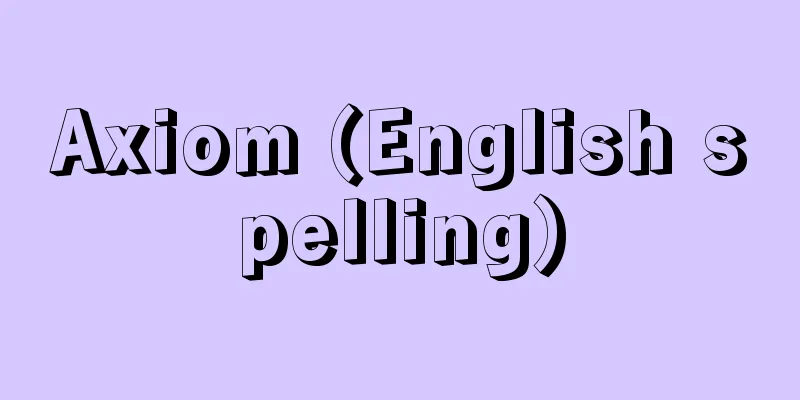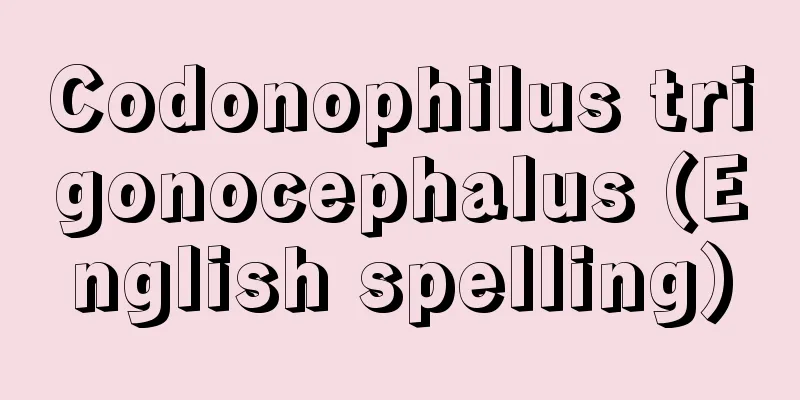Axiom (English spelling)

|
The assumptions that are the starting point of a theory are called axioms. Each theory in mathematics is premised on some propositions and developed with only those assumptions. In other words, new propositions are derived one after another based on the propositions that were initially assumed and on propositions that have already been derived from those propositions. These initial assumptions are called the axioms (or axiom system) of the theory. One such example is the famous Peano axioms, which are a set of axioms in natural number theory. These are (1) to (5) below. (1)1 is a natural number. (2) If n is a natural number, then n + 1 is also a natural number. (3) If n is a natural number, then n + 1 ≠ 1. (4) If n + 1 = m + 1, then n = m. (5) For a predicate P(x) for a natural number x, if P(1) and “If P(k) for any natural number k, then P(k+1)” are true, then for all natural numbers n, P(n). In the past, an axiom was thought to be a "self-evident proposition." In other words, a theory was thought to be something that derives a non-self-evident correct proposition from several "self-evident propositions." Geometry was already structured axiomatically in this way in Euclid's "Elemental Geometrie" (Stoikeia), which is said to have been compiled around 300 BC. It consists of axioms such as "a straight line can be drawn from any point to any other point," including what is called the "parallel axiom." This axiom was more complex than the others and was not considered very self-evident, so it was thought to be derivable from other axioms. However, in the 19th century, it was confirmed that a new geometry could be created using its negated proposition as an axiom instead of the parallel axiom. This is non-Euclidean geometry. The recognition that axioms are not "self-evident propositions" but "assumptions that form the premise of a theory" was gained from this historical development. [Ken Hirose] Source: Shogakukan Encyclopedia Nipponica About Encyclopedia Nipponica Information | Legend |
|
ある理論の出発点となる仮定を公理という。数学における各理論は、いくつかの命題を前提とし、それらのみを仮定として展開される。すなわち、最初に仮定された命題や、それらからすでに導かれている命題を前提として、次々に新しい命題が導かれるのである。この仮定される最初の前提が、その理論の公理(あるいは公理系)とよばれるものである。 そのような例としては、たとえば、自然数論の公理系として有名なペアノの公理がある。次の(1)~(5)がそれである。 (1)1は自然数である。 (2)nが自然数ならばn+1も自然数である。 (3)nが自然数ならばn+1≠1である。 (4)n+1=m+1ならばn=mである。 (5)自然数xについての述語P(x)について、P(1)および「任意の自然数kについてP(k)ならばP(k+1)」が成立すれば、すべての自然数nについてP(n)である。 かつては、公理とは「自明な命題」のことと考えられていた。つまり、いくつかの「自明な命題」から自明でない正しい命題を導き出すものが理論である、と考えられていたのである。紀元前300年ごろ集大成されたといわれているユークリッドの『幾何学原本』(ストイケイア)では、すでに、幾何学がこのように公理的に構成されている。そこでは、「任意の点から任意の点まで直線が引ける」などの公理からなっているが、そのなかには「平行線公理」といわれるものも含んでいる。この公理は他に比べて複雑で、あまり自明とも思われなかったため、他の諸公理から導けるものと考えられていたが、19世紀に至って、平行線公理のかわりに、その否定命題を公理としても新しい幾何学ができることが確かめられた。これが非ユークリッド幾何学である。 公理とは「自明な命題」ではなく「理論の前提となる仮定」であるという認識は、このような歴史的展開から得られたのである。 [廣瀬 健] 出典 小学館 日本大百科全書(ニッポニカ)日本大百科全書(ニッポニカ)について 情報 | 凡例 |
Recommend
Gelber, J.
…The group was founded in 1947 by director and ac...
Janiropsis longiantennata (English spelling)
...Many species live in groundwater, including th...
Clavijo - Claviho (English spelling) Ruy González de Clavijo
Spanish courtier. From the end of the 14th centur...
VÖEST (English spelling) VOEST
...The following example clearly illustrates this...
Ghiyāth al-Dīn Tughluq
...1320-1413. The third Turkish dynasty of the so...
Permanent magnet
An object that never loses its magnetic force tha...
Umi Hachiman Shrine - Umi Hachimangu
(Umi Town, Kasuya District, Fukuoka Prefecture) A ...
Archaeometry
…Conservation science can be defined as the natur...
Sodium nitroprusside
Chemical formula: Na 2 [Fe(CN) 5 NO]・2H 2 O. Offic...
Shipping trade
…Originally, it refers to a specific place where ...
First strike capability
...This was due in large part to the fact that th...
Adenocaulon
...A perennial herb of the Asteraceae family that...
Transmission theory - densouriron (English spelling) transmission‐line theory
Transmission paths have imperfections that cause n...
surrogate mother
...Artificial insemination, which was once used p...
Anglican chant
… Among the other Protestant denominations that a...







![Kurobe [city] - Kurobe](/upload/images/67cb740ed39fa.webp)

